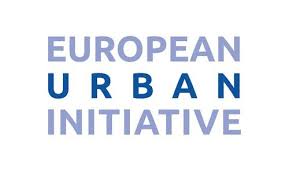
European Urban Initiative
Type of work: Project and Program Management
Relevent Country: Canada
Last Date: 14-10-2024
With an indicative budget of EUR 90 million ERDF, the third Call for Proposals of EUI – Innovative Actions is targeting innovative projects focusing on the two topics: ‘Energy transition’ and ‘Technology in cities’.
Topics of the Call
The Call will fund projects to deliver tangible, real-life examples under the topics ‘energy transition’ and ‘technology in cities’.
Topic 1: Energy transition
Under the topic ‘energy transition’, the European Urban Initiative aims at supporting the testing of transferable and scalable innovative solutions in real-life settings for economically viable, smarter and more integrated local energy networks, zero carbon and demand driven while empowering citizens and stakeholders to accelerate the transition.
Topic 2: Technology in cities
Under the topic ‘technology in cities’ the European Urban Initiative aims at supporting the testing of innovative solutions powered by new technologies in real life settings for better services to citizens and/or for boosting local authorities’ capacities to offer these services, via experimentations that could be replicated at a wider scale with the help of the Cohesion policy investments.
European Urban Initiative – Two Strands
The EUI includes two strands: (a) support of innovative actions, and (b) support of capacity and knowledge building, territorial impact assessments, policy development and communication. Main elements of the EUI intervention logic.
The specific objectives of the strand (a) support of innovative actions are:
To identify and support the testing of transferable and scalable innovative solutions to address issues relating to sustainable urban development at Union level;
To collect and share results from experimentations and support transfer activities, in view of fostering innovation capacities and knowledge building for all EU urban areas and mainstreaming innovative solutions in sustainable urban development, under Article 11 of the ERDF/CF Regulation and beyond.
The specific objectives of the strand (b) support of capacity and knowledge building, territorial impact assessments, policy development and communication are:
Capacity building part (sub-strand b.1)
To improve the capacities of cities in the design of sustainable urban development policies, strategies and practices in an integrated and participative way;
To improve the design and implementation of sustainable urban development policies, strategies and action plans in cities.
Knowledge building, territorial impact assessments, policy development and communication part (substrand b.2)
To develop a knowledge base in support of better sustainable urban development policy and strategy design, implementation and mainstreaming;
To ensure easier access to horizontal and thematic knowledge and share knowhow on sustainable urban development;
Funding Information
CEST with an allocated indicative budget of EUR 90 million ERDF. Each project can receive up to a maximum of EUR 5 million ERDF co-financing and project implementation should take place within a maximum period of 3,5 years.
Common Requirements for Eligible Urban Authorities
In addition to the principles outlined above for each specific category of eligible urban authorities, the following principles apply to all eligible urban authorities in the framework of the EUI-IA:
All urban authorities shall be located in an EU Member State.
Only eligible urban authorities as defined above may submit an Application Form in the framework of the EUI-IA Call for Proposals. An Application Form submitted by a Delivery Partner will be declared ineligible.
Urban authorities can be listed in a project proposal only as MUA and/or AUA. The category of Delivery Partners is reserved only to institutions and/or organisations that are not recognised as urban authorities in the framework of the EUI-IA.
If innovative solutions require an urban-rural interface or functional area approach, it is possible to include Local Administrative Units defined as rural according to their degree of urbanization (DEGURBA code 3 of Eurostat) as Delivery Partners. Please note that their number of inhabitants does not count to reach the minimum eligibility threshold of 50 000.
An urban authority or an organised agglomeration can be involved in only one project proposal in the framework of each Call for Proposals (even if these project proposals are submitted under different topics in the same Call for Proposals). The rule applies also to the AUA (a municipality can be involved in only one project proposal whether it is as a MUA or as an AUA).
Agencies and companies (e.g.: in the field of energy/waste management, economic development, touristic promotion, etc.) fully or partially owned by the municipality/city council are not considered as Local Administrative Units and therefore cannot be recognised as eligible urban authorities.
Source: https://www.urban-initiative.eu/calls-proposals/third-call-proposals-innovative-actions